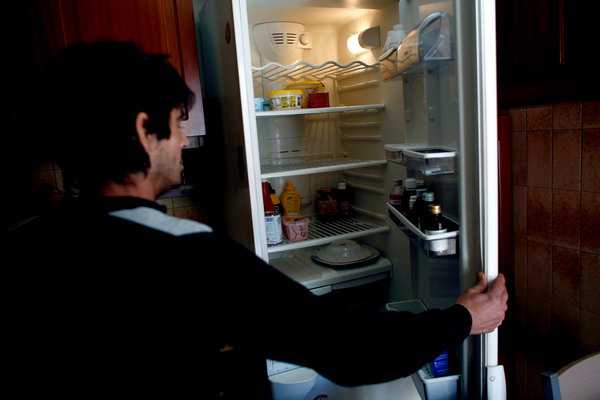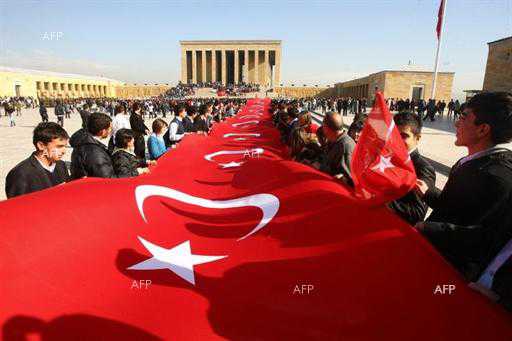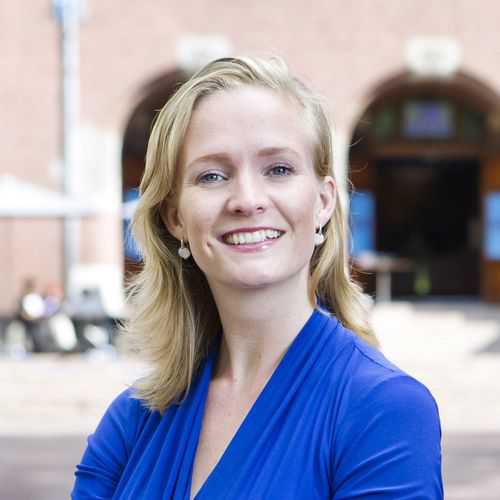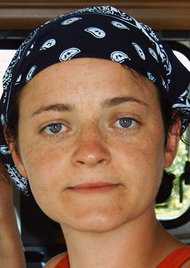
Michalis Petrakis, who is jobless and whose son Pantelis has been going to school hungry, shows his nearly empty refrigerator.
By LIZ ALDERMAN
ATHENS — As an elementary school principal, Leonidas Nikas is used to seeing children play, laugh and dream about the future. But recently he has seen something altogether different, something he thought was impossible in Greece: children picking through school trash cans for food; needy youngsters asking playmates for leftovers; and an 11-year-old boy, Pantelis Petrakis, bent over with hunger pains.
“He had eaten almost nothing at home,” Mr. Nikas said, sitting in his cramped school office near the port of Piraeus, a working-class suburb of Athens, as the sound of a jump rope skittered across the playground. He confronted Pantelis’s parents, who were ashamed and embarrassed but admitted that they had not been able to find work for months. Their savings were gone, and they were living on rations of pasta and ketchup.
“Not in my wildest dreams would I expect to see the situation we are in,” Mr. Nikas said. “We have reached a point where children in Greece are coming to school hungry. Today, families have difficulties not only of employment, but of survival.”
The Greek economy is in free fall, having shrunk by 20 percent in the past five years. The unemployment rate is more than 27 percent, the highest in Europe, and 6 of 10 job seekers say they have not worked in more than a year. Those dry statistics are reshaping the lives of Greek families with children, more of whom are arriving at schools hungry or underfed, even malnourished, according to private groups and the government itself.
Last year, an estimated 10 percent of Greek elementary and middle school students suffered from what public health professionals call “food insecurity,” meaning they faced hunger or the risk of it, said Dr. Athena Linos, a professor at the University of Athens Medical School who also heads a food assistance program at Prolepsis, a nongovernmental public health group that has studied the situation. “When it comes to food insecurity, Greece has now fallen to the level of some African countries,” she said.
Unlike those in the United States, Greek schools do not offer subsidized cafeteria lunches. Students bring their own food or buy items from a canteen. The cost has become insurmountable for some families with little or no income. Their troubles have been compounded by new austerity measures demanded by Greece’s creditors, including higher electricity taxes and cuts in subsidies for large families. As a result, parents without work are seeing their savings and benefits rapidly disappear.
“All around me I hear kids saying: ‘My parents don’t have any money. We don’t know what we are going to do,’ ” said Evangelia Karakaxa, a vivacious 15-year-old at the No. 9 junior high school in Acharnes.
Acharnes, a working-class town among the mountains of Attica, was bustling with activity from imports until the economic crisis wiped out thousands of factory jobs.
Now, several of Evangelia’s classmates are frequently hungry, she said, and one boy recently fainted. Some children were starting to steal for food, she added. While she does not excuse it, she understands their plight. “Those who are well fed will never understand those who are not,” she said.
“Our dreams are crushed,” added Evangelia, whose parents are unemployed but who is not in the same dire situation as her peers. She paused, then continued in a low voice. “They say that when you drown, your life flashes before your eyes. My sense is that in Greece, we are drowning on dry land.”
Alexandra Perri, who works at the school, said that at least 60 of the 280 students suffered from malnutrition. Children who once boasted of sweets and meat now talk of eating boiled macaroni, lentils, rice or potatoes. “The cheapest stuff,” Ms. Perri said.
This year the number of malnutrition cases jumped. “A year ago, it wasn’t like this,” Ms. Perri, said, fighting back tears. “What’s frightening is the speed at which it is happening.”
The government, which initially dismissed the reports as exaggerations, recently acknowledged that it needed to tackle the issue of malnutrition in schools. But with priorities placed on repaying bailout funds, there is little money in Greek coffers to cope.
Mr. Nikas, the principal, said he knew that the Greek government was laboring to fix the economy. Now that talk of Greece’s exiting the euro zone has disappeared, things look better to the outside world. “But tell that to the family of Pantelis,” he said. “They don’t feel the improvement in their lives.”
Dimitris Bounias contributed reporting.
A version of this article appeared in print on April 18, 2013, on page A1 of the New York edition with the headline: More Children In Greece Start To Go Hungry.
via More Children in Greece Start to Go Hungry – NYTimes.com.
more :






